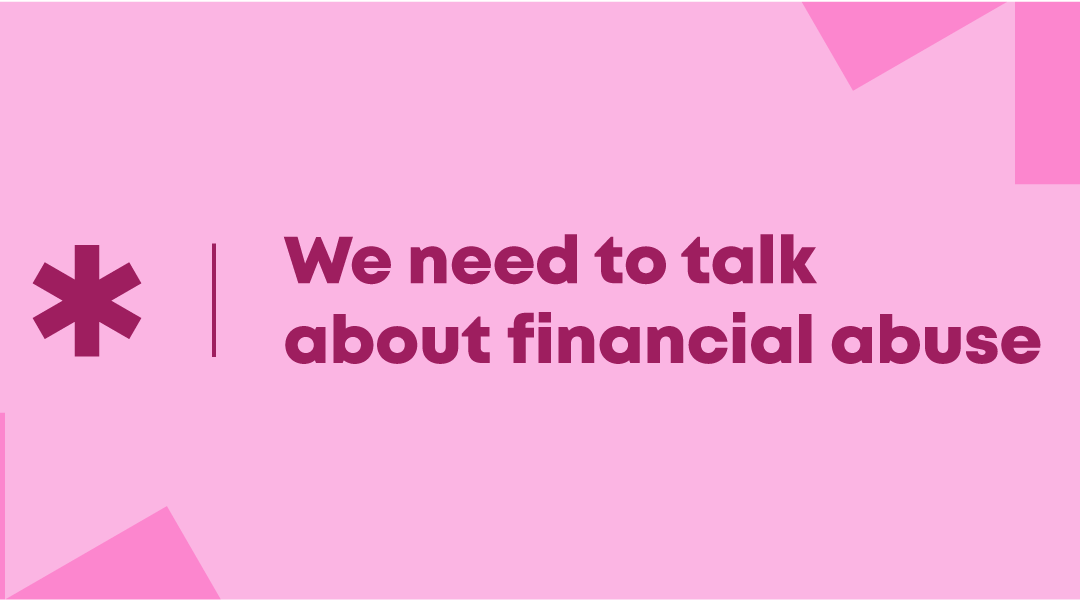Written by Vivi Friedgut
In this same week, we see the different elements of the female experience – the week started with International Women’s Day and is ending with the disappearance of Sarah Everard.
IWD is a celebration of women’s achievements and an opportunity to shine a spotlight on the work still to do on gender-based inequality.
On the other hand, we have a young woman disappearing while on her way home in South London. We can only hope that by the time you read this she will have been found safe and sound and this nightmare will be over but as I write this on Wednesday evening (10th March) that is looking unlikely.
This dual experience of the week has accelerated my desire to write this piece about financial abuse – a seldom discussed form of abuse that disproportionately impacts women.
I think about it often – not because it is something I or anyone close to me has experienced (that I know of!) but because I have heard so many tales of low-level, and extreme, financial coercion in my extended circle of acquaintances. And because it speaks to my view of the value of money and why I have dedicated my career to raising financial wellbeing standards.
As I listen to the news in the background I feel sick and heartbroken – not just by the current news centered around Clapham Common but the fact that gender-based financial abuse strips women of their dignity, their self worth and in a growing number of cases – their life.
So on this day, it feels appropriate to break down the least discussed type of coercive control.
So what is it?
Economic abuse is often just one element of a broader pattern of abuse designed to reinforce or create economic instability by limiting women’s choices and ability to access safety.
A common tactic, for example, is to put all debts in the name of the woman and all assets (eg savings accounts, pensions, and the mortgage) in the man’s name. This leaves the woman indebted, with a credit score that reflects the full extent of the liabilities, and trapped.
A lack of access to economic resources can be a further barrier to leaving abusive men and thus experiencing more harm as a result.
How widespread is the problem?
According to research from Refuge more than 8.7m people in the UK have experienced economically abusive behaviour in a current or previous relationship.
Is it legal?
Enshrining in law that women may not be deprived of their financial autonomy, either in or after an abusive relationship, should be a no-brainer. But actually, the legislation has been late in coming.
Nonetheless, it is a welcome development that the Domestic Abuse Bill began its Report Stage on 8 March 2021 and includes a raft of new amendments including those to widen the scope of “Controlling and Coercive behaviour” which look likely to become law.
This will hopefully put in additional protections, even post-separation, against coercive control and the economic abuse elements that can continue long after the breakup of a relationship.
This is crucial since a quarter of women reported their partner continued to financially control after they separated.
How to protect yourself from financial abuse?
The only way to protect your finances is to maintain control over them. There are two elements to this control.
The first is independence. Ensure you have your own money (ideally at least 2-3 months’ worth of living expenses – an emergency fund) and that you are the only one who can access it. You may even be the only one who knows about it.
The second part is protection from being left in a financial hole. That means not handing full control over any shared finances to your partner. That means that both assets and liabilities are all in both names and that both partners have all passwords, pin numbers, codes, and access to the necessary paperwork.
Having control means having understanding so the more you know about what money is coming in, what’s going out the more in control you will be.
And this is one of the times when control is key.
5 warning signs to help you help your friend identify financial abuse in her relationship
- If her partner controls how and when money is spent
- If her partner expropriates your friend’s paycheck, student loan or any other forms of funding that are supposed to support your friend
- If your friend refuses to speak about money or seems embarrassed or defensive about her finances
- If your friend discovers that debts have built up in her name for example loans or credit cards taken out in her name but used by her partner
- If her partner isolates your friend from her social circle, takes control of her phone or laptop
Where can support be found?
If you have experienced economic abuse, or someone close to you is (or you suspect that they are) then you are not alone and there are a myriad of organisations and charities that can support you however you need – including legal, financial and debt advice.
A central resource hub is the Surviving Economic Abuse charity. The only UK charity dedicated to raising awareness of economic abuse.
An extensive list can be found here.
In Conclusion
Financial abuse seldom happens in isolation and it can, in the early stages, be viewed as caring “don’t worry about the money, I’ll take care of it.”
But having a lack of control of, and access to, financial resources dramatically curtails a woman’s ability to protect herself, and in many cases, her children, from an undesirable, potentially dangerous situation.
Ask for help if you feel you may be on a dangerous path and remember, money isn’t about the stuff you buy but the opportunities it presents – be the master of your own money so no one can ever be master over you.

